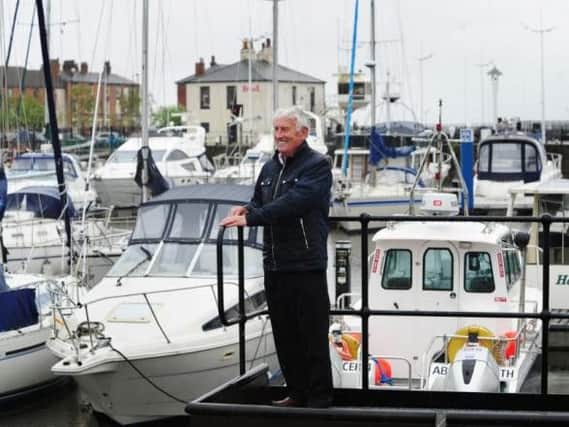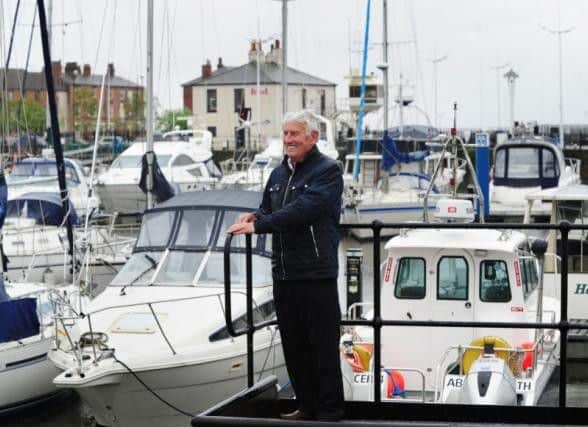Beacon of hope from a sailor who almost didn't return from the Pacific


As luck would have it David Marshall was plucked from the jaws of death, after being pitched into the waves of the Pacific.
Years later his experience prompted him to invent a locator beacon, which let rescuers know the victim’s exact position, and is still used by tens of thousands of offshore workers round the world. Now 76, Mr Marshall, who lives in Beverley, East Yorkshire, has written a book of his extraordinary life and battles with devious investors and British Government bureaucracy, called The Beacon Man.
Advertisement
Hide AdAdvertisement
Hide AdAfter leaving the sea, he set up a company to supply electronic gear for Hull’s then massive deep sea trawling fleet. The loss of the supposedly unsinkable Gaul in 1974 with all hands in the Barents Sea was a pivotal moment. No one knew where and when it had foundered, making search operations extremely difficult.


“The more I looked into marine losses, sudden sinkings and man overboard reports the more I felt that more could and should be done to improve safety at sea,” he said.
A successful demonstration in front of Press and Government representatives of an emergency beacon attracted interest from a branch of the Ministry of Defence, the Royal Radar Establishment, which asked him to produce the first civil commercial locator beacon for the joint service entry in the Whitbread Round The World yacht race in 1977.
The emergency Locat transmitters, which could be worn on lifejackets and which emitted a signal within seconds of hitting the water, were endorsed by Robin Knox Johnston - later Sir Robin.
Advertisement
Hide AdAdvertisement
Hide AdOne of the first customers was Ken Kerr, an adventurous ex Royal Navy Scot who decided to row singlehandedly across the Atlantic. Unluckily for the 27-year-old, two months in, he was suddenly dumped into the bitterly cold sea 750 miles east of Newfoundland, when his yacht hit a “lump of water” and capsized.


He managed to get hold of his Locat transmitter, which was floating in the water. Aircraft including Concorde picked up the distress call and he was later rescued by a cargo ship. “We couldn’t have wished for better publicity,” said Mr Marshall.
But getting the UK Government to endorse the device - apparently because of lobbyists for other commercial interests - was an uphill battle, and Mr Marshall had to fight on until the mid 1990s for approval.
The Americans, however, were willing to take up his invention while the UK pussy-footed.
Advertisement
Hide AdAdvertisement
Hide AdHe had lunch with keen supporters Senator Ted Kennedy and his son, Patrick on Capitol Hill. The Russians were also interested, but one of the banks put the oar in, calling in part of his overdraft at the worst possible time.
Mr Marshall lost his business twice and had to restart, latterly as Marine Rescue Technologies, which he sold to an Australian company four years ago. They are still one of the main global suppliers from their base in Beverley. Mr Marshall’s message to would-be innovators is: “Never give up - pursue what you believe in.”
The Beacon Man is on sale at Waterstones in Hull and WH Smiths, Toll Gavel, Beverley, priced £9.99.